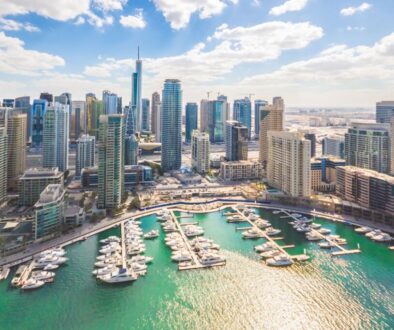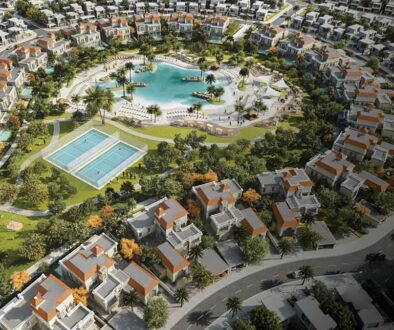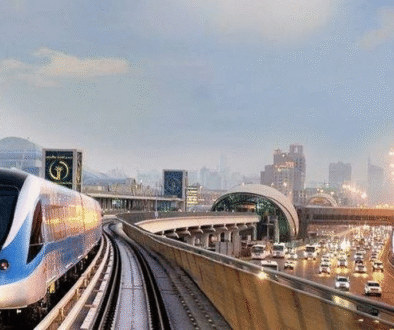Off-Plan Mortgages in Dubai: The 2025 Guide
Dubai’s property market continues to thrive, with new towers reshaping the skyline and master communities expanding every year. For both investors and families, the city remains a place where lifestyle and long-term value come together.
Among the different property types available, off-plan developments have become a clear favorite. Buyers are drawn to them because they offer lower entry prices and flexible payment plans, making them attractive for first-time homeowners and seasoned investors alike.
The Rise of Off-Plan Mortgage Options
Until recently, financing under-construction properties was a challenge in Dubai. Buyers typically relied on developer payment plans or full cash payments. However, evolving lending regulations and innovative financing models have introduced a new solution — off-plan mortgages — allowing buyers to secure bank funding while the project is still being built.
What Is an Off-Plan Mortgage?
An off-plan mortgage is a home loan for a property that’s still under construction. Instead of paying the entire price upfront, the buyer finances part of it through a bank.
Unlike traditional home loans for ready properties, the bank disburses funds gradually — tied to construction milestones — to minimize risk and ensure consistent project progress. This stage-based approach means payments are released as the building advances, not all at once.
How Off-Plan Mortgages Work in Dubai
These mortgages are structured around the project’s construction schedule. Here’s the general flow:
- Buyers typically pay 10–20% at the time of booking.
- Banks then release payments to the developer as the project hits key milestones.
- Buyers continue paying their share alongside the financed portion.
Loan-to-Value (LTV) ratios usually range from 50–60%, which means buyers must cover roughly half the property cost themselves. While this requires higher initial investment, repayment can stretch up to 25 years, making long-term affordability more manageable.
Dubai’s 2025 Off-Plan Mortgage Rules
New mortgage rules introduced in 2025 brought greater structure and safety to off-plan financing:
- 40% Completion Rule – Banks only release funds once the project reaches at least 40% completion, reducing the risk of stalled projects.
- 50% Buyer Contribution – Buyers must fund half the property cost before the mortgage kicks in, ensuring commitment and financial stability.
- Mandatory Mortgage Pre-Approval – Buyers must secure pre-approval, valid for around three months, before proceeding with purchase.
- Fixed Interest Rates – Current rates average 4.49% with salary transfer, and 4.99% without, typically fixed for three years.
- Direct Fee Payments – Registration and broker fees must be paid separately, keeping the financing process more transparent.
These reforms promote trust, accountability, and long-term market stability.
Benefits of Off-Plan Mortgages
Opting for an off-plan mortgage can provide several advantages:
- Lower initial cost – Enter the market without paying the full price upfront.
- Potential appreciation – Property value may rise before handover, building equity early.
- Extended tenure – Up to 25 years for easier repayment.
- Better cash flow – Keeps liquidity available for other investments.
- Added security – Bank-backed projects mean developer vetting and reduced risk.
Risks to Consider
While the benefits are appealing, buyers should also account for potential challenges:
- Construction delays can push back handover dates.
- Market fluctuations may affect property value before completion.
- Strict eligibility checks can delay approval.
- No rental income until handover is complete.
- Higher long-term costs compared to some post-handover developer plans.
Understanding these factors early helps with better financial planning.
Eligibility Criteria
Most banks follow similar requirements:
- Minimum age: 21 years
- Minimum income: AED 10,000/month
- Debt Burden Ratio (DBR): Below 50%
- Good credit history
- Open to both residents and non-residents (though stricter for non-residents)
- Accepted for both salaried and self-employed applicants
Approved Developers for Off-Plan Mortgages
Banks typically approve projects from established developers such as:
Emaar, Sobha Realty, Ellington, Damac, Dubai Holding, Omniyat, Majid Al Futtaim, Aldar, Al Wasl, and Binghatti.
Projects from these names are generally considered low-risk and qualify for off-plan financing.
Alternative Options
If a bank mortgage doesn’t fit your plan, consider:
- Developer post-handover plans: Pay during construction and continue installments after handover — often interest-free.
- Traditional mortgage after completion: Apply for a standard home loan once the project is ready.
- Hybrid payment approach: Combine cash payments during construction with mortgage financing later.
Each option has its pros and cons depending on your liquidity and investment horizon.
Application Process
- Consult a mortgage advisor to identify suitable banks and products.
- Get mortgage pre-approval to fix your budget.
- Confirm developer/project approval (must be at least 40% complete).
- Submit required documents – including ID, visa, income proof, and sales agreement.
- Bank evaluation – assessment of credit, income, and project.
- Stage-based payments – bank releases funds as construction advances.
Common Mistakes to Avoid
- Skipping pre-approval before booking.
- Overlooking developer reputation or completion history.
- Ignoring additional costs (registration, maintenance, etc.).
- Overestimating affordability or exceeding DBR limits.
- Assuming every project from a top developer qualifies for financing.
Final Thoughts
The off-plan mortgage has transformed how investors and end-users access Dubai’s property market. With the 2025 lending framework — including the 40% completion and 50% buyer contribution rules — the system now promotes greater transparency and buyer protection.
Whether you’re a family seeking flexibility or an investor aiming for capital growth, off-plan financing offers a practical route into Dubai’s evolving real estate landscape — as long as it’s paired with sound planning and clear understanding of risks.




